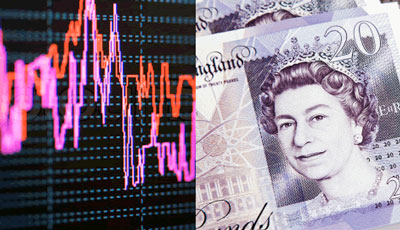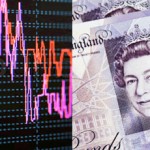British pound is facing continued pressure on Friday morning

The British pound is facing continued pressure on Friday morning after Liam Fox, Michael Gove and Dominic Raab spoke out against the UK PM at a senior ministers Brexit meeting in Downing Street last night.
The Pound to Euro (GBP/EUR) exchange rate is trending just -0.01% lower at €1.14165.
The Pound to US Dollar (GBP/USD) exchange rate is +0.02% higher at $1.32356.
Reports that the DUP is threatening to withdraw its support for the government over Brexit if it is not happy with the final deal have seen the pound fall against the G10 currency basket on Friday afternoon.
As Brexit speculation reaches fresh highs, the Pound Sterling exchange rates have seen a sea of red as markets head into the weekend.
Shifting market bets on the prospect of the UK and EU agreeing a Brexit deal on Monday saw the Pound Sterling to Euro (GBP/EUR) exchange rate come under pressure.
Investors began unwinding the odds of an imminent agreement in the wake of less optimistic comments from Irish officials.
As the Irish border issue reportedly remains unresolved the likelihood of a breakthrough looks limited, leaving the Pound on a generally weaker footing on Thursday morning.
While tensions between the Italian government and European Commission remain elevated this was not enough to keep the GBP/EUR exchange rate from trending lower at this stage.
A surprise contraction in September’s RICS house price index put additional pressure on the Pound, meanwhile, as confidence in the underlying health of the UK housing market weakened.
Pound Fails to Find Support on BoE Surveys
The latest quarterly Bank of England (BoE) credit conditions and bank liabilities surveys failed to encourage any GBP bullishness, with signs pointing towards a decline in lending.
With banks and building societies reining in credit availability the domestic mood appears to be turning increasingly cautious in the third quarter.
However, this is still likely to offer encouragement to BoE policymakers, as Howard Archer, Chief Economic Advisor for EY ITEM Club, noted:
‘The BoE has been concerned that banks risk becoming complacent in their lending behaviour so it should take some comfort from banks reportedly tightening their lending standards for granting unsecured consumer credit.’
While this decline in credit availability should ease worries over the resilience of UK households and the wider economy GBP exchange rates were still exposed to downside pressure.
Confidence in the Pound is likely to deteriorate further ahead of the weekend if worries over Brexit mount further.
Unless investors see signs that the UK and EU are likely to agree a deal next week the GBP/EUR exchange rate looks set to extend its losses.
Any increase in tensions between the two sides could weigh heavily on Pound demand, with markets still wary of the prospect of the UK leaving the EU without any deal in place.
Italian Budget Tensions to Keep EUR Exchange Rates Under Pressure
Worries over the Italian budget are likely to remain a significant drag on EUR exchange rates in the days ahead, with markets bracing for EU authorities to reject the proposal.
As Tim Riddell, research analyst at Westpac, commented:
‘If it is rejected, Italy will need to rework the budget over a subsequent three weeks. EU Leaders’ meeting (17th-18th) could become be a forum for budget discontent. Unless there is a quick compromise over Italy’s budget (and others!), sentiment should remain heavy, as shown in the BTP-Bund spread remaining elevated around 300bps. Also, rating agencies are due to respond into month-end.’
Any escalation in the disagreement over Italy’s planned budget deficit could drive the Euro lower across the board in the near term.
Friday’s Eurozone industrial production data is forecast to put fresh pressure on the single currency as investors anticipate a fresh contraction.
Evidence of a continued slowdown in industrial output would fuel further doubts regarding the underlying health of the Eurozone economy.
With global trade tensions showing no signs of easing the Eurozone looks set to suffer from a further weakening of international demand, limiting the potential for an economic rebound.
On the other hand, if production picks up in August this could fuel hopes that the Eurozone economy recovered some of its lost momentum at the start of the third quarter.
The finalised German consumer price index data for September may also offer support to EUR exchange rates.
Confirmation that inflation within the Eurozone’s powerhouse economy strengthened should boost the odds of the European Central Bank (ECB) taking a more hawkish approach to monetary policy in the coming months.
Any downward revision, though, would give the GBP/EUR exchange rate a fresh rallying point.
Source: ExchangeRates



























